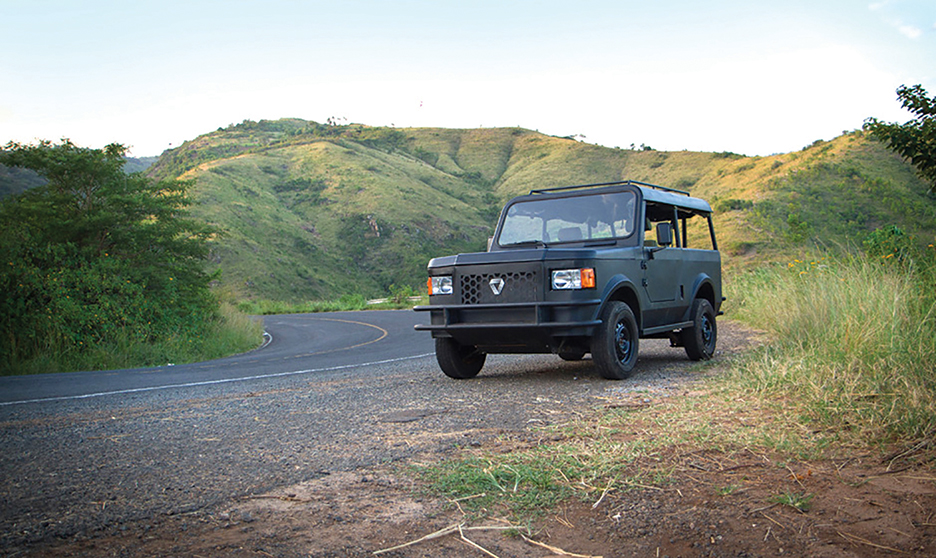[MOBIUS MOTORS]
REUTERS
On the edge of Nairobi, two doors down from a gleaming display of Germany’s luxury Porsche cars, another showroom offers Africa’s answer to the continent’s potholed roads.
It’s called the Mobius. It has no flashy dials, alloy wheels or electric windows. In fact, it has no windows at all except for the windshield. Instead, the square car-cum-pickup with its aluminum panels has been stripped of extras to make it sturdy and cheap.
“We are not trying to reinvent the wheel; we are just trying to make one that is a bit tougher,” says sales manager Aman Ghai in the showroom, where engineers are also at work.
Mobius Motors hopes to design, build and sell a product in Africa, which has long provided the raw materials to feed the world’s factories but struggled to create a manufacturing base at home.
Mobius faces prodigious challenges. It has had to weave through government bureaucracy, a perennial complaint for businesses. Fifty cars are being built in the first batch, each selling at $10,500 before tax.
Starting the project on African soil also had benefits, enabling the engineering team in Kenya to focus on what rural Africans need. The car’s back seats run along the sides and fold away to create space for goods, while a heavy-duty suspension copes with bumpy roads. Minimal electronics mean there is less to break down.
“The challenge is basically overcoming that fear that Africans can’t manufacture,” said Ghai, a Kenyan who worked for foreign dealers in the past. “We have all the resources here. We have the talent pool here. It is just getting over the fear.”
The company could make two vehicles a day at its plant and plans other versions, including one with four-wheel drive. The Mobius II model, designed in Kenya, will have about 45 percent local content, although the engine and some other parts are imported, a practice common in the industry, particularly for new entrants.

